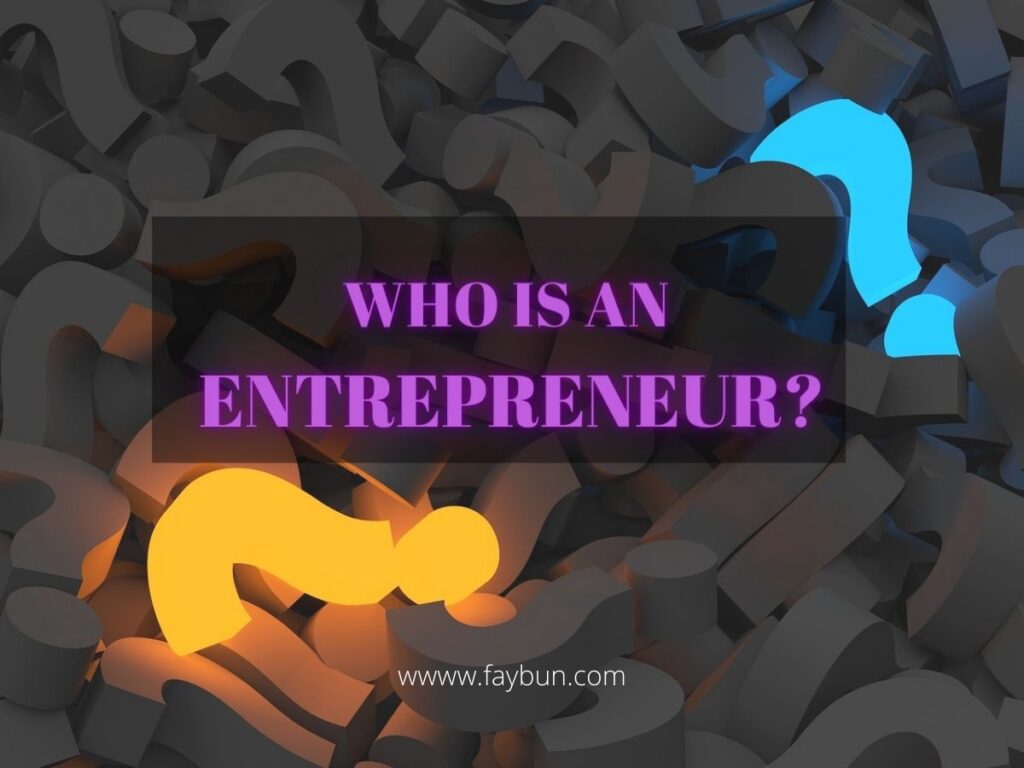It has become commonplace to call every business owner we come across, an “Entrepreneur”. I’ve also stumbled across several scenarios where Business Managers are being referred to as Entrepreneurs. This confusion begs the question; who really is an Entrepreneur?
This article will attempt to clear up this ongoing confusion by adding to the debate on the topic of entrepreneurship as well as the characteristics of an entrepreneur?
Investopedia defines the word “entrepreneur” as an individual who creates a new business, bearing most of the risks and enjoying most of the rewards. The entrepreneur is commonly seen as an innovator, a source of new ideas, goods, services, and business/or procedures.
Peter F. Drucker states that “Entrepreneurs innovate. Innovation is the specific instrument of entrepreneurship. It is the act that endows resources with a new capacity to create wealth. Innovation indeed creates a resource.”
According to Richard Cantillon, an entrepreneur is the agent who buys means of production at certain prices in order to combine them into a product that he is going to sell at prices that are uncertain at the moment at which he commits himself to his costs. Schumpeter, defined entrepreneurs as individuals who exploit market opportunity through technical and/or organizational innovation.
Bolton and Thompson in their book titled “Entrepreneurs: Talent, Temperament, Technique” simply defined an entrepreneur as a person who habitually creates and innovates to build something of recognized value around perceived opportunities.
Hisrich characterized an entrepreneur as someone who demonstrates initiative and creative thinking, is able to organize social and economic mechanisms to turn resources and situations to practical account, and accepts risk and failure.
I especially find the definition of Mark Cuban, the owner of Dallas Mavericks pretty simple. He defines an entrepreneur as someone who can define the business they want to create, see where it is going, and do the work to get there.
Though there’s a lack of consensus over the meaning of the word “Entrepreneur”, it’s important to note at this stage; common words, notions and themes running through the above mentioned definitions.
Common Key Words and Themes:
- Innovation
- New ideas or business
- Risk taking
- Opportunity
- Creativity
- Commitment
- Determination
This brings us to our next question; what are the characteristics of an Entrepreneur? Drawing from the definitions above, the basic characteristics(and not limited to) of an entrepreneur are:
- Self-Motivation
One of the foremost traits of entrepreneurs is self-motivation. To succeed, one needs to be self-driven. An entrepreneur isn’t really answerable to anyone but themselves (in most cases), which means that sometimes it’s difficult to keep the ball rolling without being pushed. Hard-working business owners are incredibly motivated to succeed. Self-motivation is therefore the process of stimulating oneself towards actions that will invariably accomplish set goals.
- Risk Taking
It is important to note here that not all entrepreneurs are successful. Several researches have shown that a majority of new businesses do not survive past the one year mark. Successful entrepreneurs know the importance of risk taking. Playing safe all the time hardly yields much for business owners. A good entrepreneur knows that it’s not just about taking just any risks but rather taking calculated risks that are most likely to pay off. They usually, plan for the unknown therefore making calculated decisions that yield lots of profits.
- Innovation
In a world, saturated with ideas and a myriad of inventions, a world dominated by technology, innovation is an invaluable gem to possess. Becoming an entrepreneur begins with an idea. An entrepreneur discovers opportunities, finds innovative ways to do things and solve problems.
- Passion
Successful entrepreneurs are passionate. They are deeply concerned about their product, service or mission. Passion is the propellant for successful entrepreneurship. Entrepreneurs are driven by passion. Their deep love for what they do keeps them fully invested in their projects. Passion is what keeps entrepreneurs focused on the objectives even when the going gets really tough.
- Accountability & Responsibility
Entrepreneurs are ultimately responsible for the direction and result of their business ventures. Which can be in the form of a company, a project, or any other endeavour. The entrepreneur has the most at stake in the venture, thus, needs to be empowered to fully direct the endeavour.
- Vision
An entrepreneur has to be a visionary. Without a vision for the future of his/her endeavor, he or she would just be working haphazardly without reaching any point of success. Entrepreneurs utilize their vision by focusing on the big picture they want to accomplish, which then fuels and drives their efforts towards greatness.
This list has in no way exhausted the characteristics of entrepreneurs but merely scratched the surface by focusing on keywords and themes in the definitions of an “entrepreneur” above.
To conclude, I end with what the late Apple founder Steve Jobs said during an interview with The Computerworld Smithsonian Awards Program, “I’m convinced that about half of what separates the successful entrepreneurs from the non-successful ones is pure perseverance.”
To all entrepreneurs and future entrepreneurs out there. Persevere, be tenacious and fully committed to your vision. Equip yourselves with the right entrepreneurial skills and characteristics and DON’T GIVE UP!



